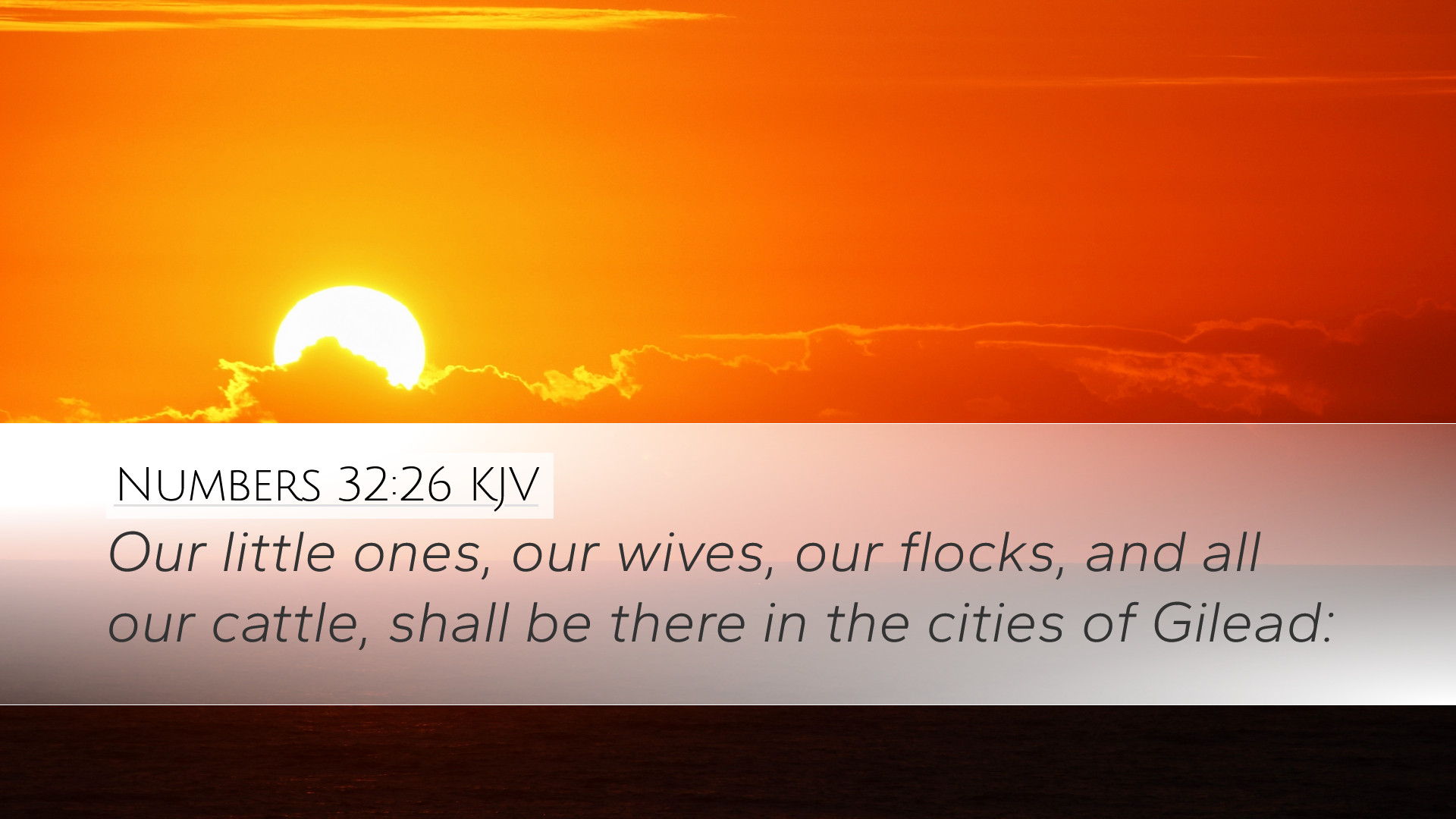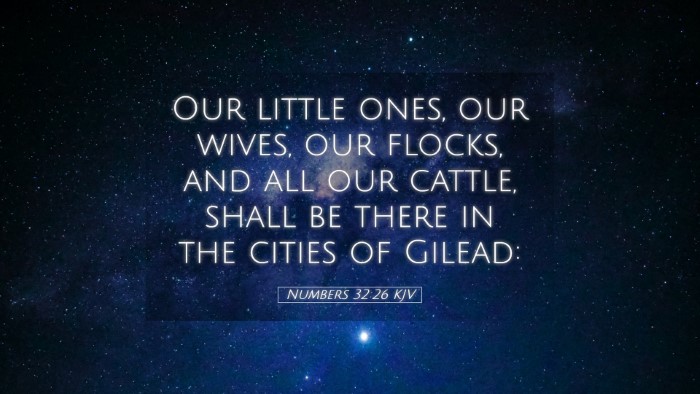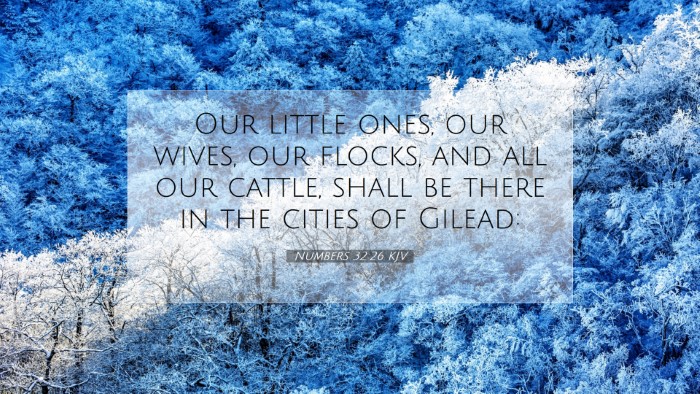Commentary on Numbers 32:26
Verse: "Our wives, our little ones, and our cattle shall be there in the cities of Gilead."
Contextual Overview
Numbers 32:26 appears in a broader narrative where the tribes of Reuben and Gad express their desire to settle in the land of Gilead rather than crossing into Canaan. This chapter provides a vital understanding of the dynamics of the Israelite community during their wilderness wanderings and their approach to land, family, and responsibilities.
Insights from Commentators
Matthew Henry
Matthew Henry notes the importance of familial responsibilities reflected in this verse. He emphasizes that the mention of "wives," "little ones," and "cattle" signifies the priorities of the tribes. Their plea indicates a deep connection to their families and the recognition of the various roles within the community. Henry interprets their choice as a desire to protect their families in more favorable conditions while still fulfilling their obligations to the larger community.
Albert Barnes
Albert Barnes focuses on the practical aspects of the request made by the tribes. He points out that the land of Gilead was beneficial for livestock and agriculture. By separating their families from the main Israelite host, they sought a dual purpose: preserving their interests and assuring their families’ welfare. Barnes further comments that the leaders show a responsible mindset, ensuring their dependents were secured even as they prepared for military endeavors.
Adam Clarke
Adam Clarke elaborates on the historical significance of the verse by highlighting the cultural aspects of familial ties among the Israelites. He interprets the willingness to allocate resources and land as a testimony to their faith while still cautious about their present conditions. Clarke emphasizes that the tribes' negotiation was not merely about territorial claims but also about the implications of leadership and the provision of nurture and protection for the vulnerable groups within their society.
Theological Implications
The verse encapsulates the tension between individual aspirations and communal responsibilities. It offers theologians a lens through which to discuss various pertinent themes, such as:
- Divine Guidance: The implication that even as communities make decisions based on their needs, they must remain attentive to God's will (numbers described in preceding chapters).
- Family Structures: The significance of protecting one’s family as a fundamental life value which resonates throughout scripture.
- Land as a Blessing: The biblical view of land as a divine gift and its connection to identity, sustenance, and faith.
Practical Applications
For pastors and teachers, this verse forms a grounding point for discussions on stewardship, familial responsibilities, and faith commitments. It encourages reflection on how contemporary believers manage their obligations within church communities and family life.
Several applications emerge from this passage:
- Balancing Responsibilities: Just as Gilead provided needed sustenance for the Reubenites and Gadites, today's believers are called to find balance between familial obligations and congregational commitments.
- Leadership and Protection: Leaders within the church are challenged to advocate for both physical and spiritual welfare of their congregants.
- Negotiation between Interests: The need for understanding in the church regarding personal vs. communal interest - how to support one’s family while contributing to collective goals.
Conclusion
Numbers 32:26 is a reflection of both a practical and spiritual reality in the life of Israel and presents timeless truths for the church today. By examining the insights of historical commentators, we glean crucial lessons about community dynamics, familial priorities, and the importance of aligning our living with God’s greater design for His people.


